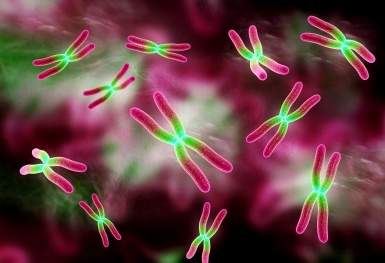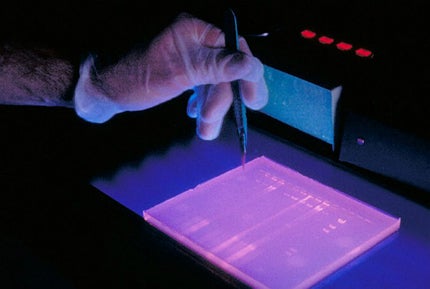

The case that resulted in this landmark decision was the Association for Molecular Pathology, Bethesda, US v. Myriad Genetics, Utah, US. It was not the first time the court had considered the issue of patenting DNA, but the ruling – a unanimous decision to invalidate Myriad’s claims to isolated genes – made all the headlines.

Discover B2B Marketing That Performs
Combine business intelligence and editorial excellence to reach engaged professionals across 36 leading media platforms.
But what does it mean for pharmaceutical research going forward? Tom Engellenner, a patent attorney in the Intellectual Property Department of Pepper Hamilton LLP, Boston, Massachusetts, believes the future is bright. "The decision is more a political statement than crushing blow to the biotech industry," he says. He also notes that: "Ironically, the Myriad patents at issue would have all expired by 2015 anyway."
Courtenay Brinckerhoff, a partner with the law firm Foley & Lardner in Chicago, Illinois, supports Engellener’s proposition, arguing that the decision brings greater clarity to patent law.
"Until this decision, the US generally permitted patents on more types of inventions than other countries," says Brinckerhoff. "For example, the US permits patents on diagnostic and therapeutic methods, while many countries do not."
Who are the winners and losers?
If you’re still trying to figure out exactly what the ruling means for the pharmaceutical industry, you’re not alone. It’s not immediately clear who the big winners are, but Brinckerhoff says that: "Some diagnostic companies are reading Myriad as giving them the green light to enter the market and start offering genetic testing for the BRCA1/2 genes." In addition, she points out that Myriad’s patents may have prevented some researchers from studying the BRCA1/2 genes and other patented genes, but that they will now be able to move ahead with their work.

US Tariffs are shifting - will you react or anticipate?
Don’t let policy changes catch you off guard. Stay proactive with real-time data and expert analysis.
By GlobalDataEngellenner adds that most companies will find that the Court’s narrow conclusion – that "isolated DNA" is not patentable – is actually a good thing. This, he says, is because: "The Court also went out of its way to note that some types of DNA can be patented – the so-called cDNA molecules." He is confident that: "Patent attorneys will respond with creative ways to avoid the type of claim that the Supreme Court found offensive."
The losers? Obviously, Myriad comes out as the primary loser in this case, although Brinckerhoff points out that the company is already asserting other patents and claims against new competitors. Myriad isn’t the only loser here, however. "Other losers include other genetic screening companies who have been relying on patents that include only ‘isolated DNA’ claims to protect their market share," says Brinckerhoff.
Weak patent portfolios: could it force biotech companies out of the US?
According to Engellenner, the Supreme Court’s ruling serves to meet the Obama administration’s overarching goal of affordable health care, by ensuring that tests for breast cancer continue to be "accessible and affordable." He does note, however, that: "Some genetic testing companies are going to realise their patent portfolios are not as strong as they thought they were."
Brinckerhoff adds that the question now is whether companies will continue development in the US: "If companies are not able to obtain US patents that protect their genetic diagnostics and personalised medicine inventions, it will be interesting to see if they decide to patent (and thus publish) them in other countries, if they rely on trade secret protection, or if they look for other technologies to invest in."
What happens next?
The big question, for the major and minor players in the pharmaceutical industry, is: where to go from here? The answer is not entirely clear.
In fact, the immediate impact on the industry, says Brinckerhoff, is "increased uncertainty", thanks in part to the fact that no one can predict exactly how the Court’s decision on Myriad will apply to other contexts – or even to other patents put forth by Myriad.
This uncertainty could make it difficult for companies to find funding and maintain their stock prices, she says. Ultimately, that could lead to a downswing in the field of genetic diagnostics and personalised medicine.
According to Engellenner, however: "Genetic testing has actually moved on already. With the rapidly decreasing cost of sequencing a patient’s whole genome, the type of tests covered by Myriad’s patents may soon be obsolete."
Brinckerhoff acknowledges that companies may simply turn to trade secrets to protect their discoveries, which would allow innovation and research to continue unimpeded.
What’s the long-term impact of DNA patent law?
Ultimately, it’s highly likely that biotech companies will continue to forge ahead with their work, including the work of obtaining patents.
If the Supreme Court, along with the Federal Circuit and the Patent Office, issues more structured guidance, we might see a corresponding shift in patent types sought and fields pursued. If the ruling continues to be applied narrowly, however, the long-term impact is likely to be minimal.
On the other hand, Brinckerhoff cautions that if these rulings are applied broadly: "The ultimate impact could be to stifle innovation in these fields, or drive innovation underground as companies resort to trade secret protection."
She also points out that: "The Supreme Court’s decision sets the US apart from other major countries with regard to ability to patent isolated DNA, including isolated human genes. Genes remain patent-eligible in Europe, Japan, China, Australia and many other countries."
In other words, innovation is likely to continue in other countries around the globe, effectively cutting the US out of a lucrative industry.
Related content
Track and Trace – a new era of compliance for drug manufacturers
EU and US regulators are ushering in a new era of pharmaceutical manufacturing and distribution compliance.
Virtual reality: the future of science teaching and pharma training?
There is a revolution coming, according to Mads Bonde, co-founder of a new million dollar virtual laboratory, and that revolution will change science teaching and pharmaceutical training forever.




